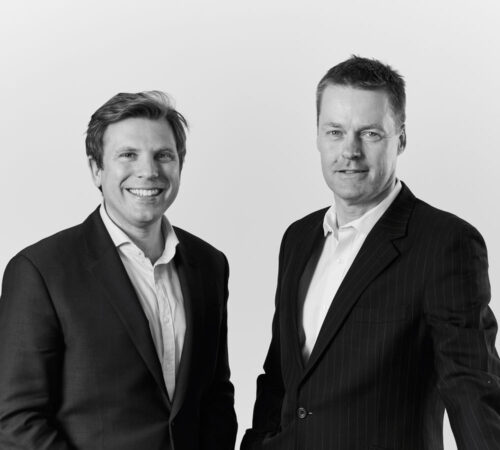Tom Matthews
Even the best growth investors can make foolish investment decisions against all conventional wisdom. Even when due diligence is conducted beforehand, investors can fool themselves into thinking they’re making an informed choice based on proper reason as well as solid evidence and analysis, and believe it shows a good potential return on investment.
Over the course of my career, I’ve seen many private equity investors proceed with such investments and end up regretting it. I’m sure none of them rushed in or took a blind leap of faith. Rather, at the time they genuinely believed they’d done everything they could to corroborate their investment thesis. However, they still made a poor choice that most likely ended up being an underperforming investment.
How did this happen? It’s something called the confirmation bias.
What is confirmation bias?
Confirmation bias is a type of cognitive bias that involves favouring information that confirms one’s previously existing beliefs or biases.
Confirmation bias occurs when someone has already made up their mind about something, even if they don’t truly realise it, and they look for information to back up their reasoning.
All of us are susceptible to confirmation bias. Our beliefs are often based on paying attention to the information that supports them—while at the same time tending to ignore the information that challenges them.
Understanding confirmation bias
Confirmation bias affects perceptions and decision-making in all aspects of life, but it can create particular problems for growth investors. When researching an investment, they might inadvertently look for or favour information that supports their preconceived notions about the business, management team or strategy and fail to register or place insufficient weight on any data that presents different or contradictory ideas. The result is a one-sided view and a self-reinforcing loop. Confirmation bias can therefore cause investors to make poor decisions.
Caution needed
It goes without saying that confirmation bias can be a massive, expensive, and stressful trap for growth investors, but it’s one that’s hard to spot when you’re in the thick of it.
Done well, growth investing can help ambitious founders achieve their goals, accelerate their businesses to the next stage of the growth journey and result in great shareholder returns for all involved. But missteps can be costly.
Investors with confirmation bias are setting themselves up for potential disaster. Perhaps it’s backing a business in a sector they have a personal interest in, or with an office location in a tropical location that they get to travel to for board meetings, or they’re inspired by desire or status.
And rather than understanding the investment fundamentals – and accepting them – a would-be growth investor with confirmation bias will seek out the information that confirms their thinking, or people who agree with them, and go ahead and transact.
Some examples of this I’ve seen are private equity firms investing in industries like ski equipment and apparel, wine manufacturers, luxury yachts, etc. I’m not saying any of these are necessarily bad decisions. What I’m saying is that buying based on confirmation bias, where any pitfalls are ignored because of an emotion-driven decision that’s already been made, is extremely risky.
Overcoming confirmation bias
Unfortunately, we all have confirmation bias. Even if you believe you are very open-minded and only observe the facts before coming to conclusions, it’s very likely that some bias will shape your opinion in the end. It’s very difficult to combat this natural tendency.
That said, if we are aware of confirmation bias and accept the fact that it does exist, we can make an effort to recognise it by working to be curious about opposing views and really listening to what others have to say and why. This can help us better see issues and beliefs from another perspective, though we still need to be very conscious of navigating past our confirmation bias. The following specific steps can help minimise the risk of confirmation bias:
- Actively seek contrary opinions, even if those opinions may seem uncomfortable at first. Also, try to understand the rationale behind the contrarian opinions
- Do not rely on just one source of information to form opinions about an investment opportunity. Look at multiple sources of information
- Knowledge is key in overcoming investor biases. Increase your investment knowledge about the different business models in the industry, stress test the investment hypothesis, understand how the business has performed through an economic cycle, etc. to make better investment decisions.
What do we do at Pemba to combat confirmation bias?
At Pemba, we try to be aware that confirmation bias may exist and have implemented some specific checks and balances to help try to combat it. Some of these techniques include:
- Using an hypothesis driven approach to developing the investment thesis
- Testing each hypothesis using independent experts and advisers through the due diligence process
- Thorough analysis of empirical data to support key assumptions used in base case forecasts
- Actively seeking out contrarian opinions and understanding why these views exist
- Having one member of the Investment Committee assume the role of ‘Devil’s Advocate’ to deliberately challenge the investment thesis and provide a contrarian view.
To minimise the risk of confirmation bias, we attempt to challenge the status quo and seek information that causes us to question our investment thesis. In fact, we are always seeking to invert the investment case to analyse why we might be wrong. We continually revisit our investment case and challenge our assumptions. We find, it is much more important to ask ourselves why we are wrong than why we are right.
“Rapid destruction of your ideas when the time is right is one of the most valuable qualities you can acquire. You must force yourself to consider arguments on the other side.” – Charlie Munger, Vice Chairman of Berkshire Hathaway and Warren Buffett’s business partner
What next?
If you are interested in understanding more about confirmation bias or any of the other cognitive biases I’ve covered in my recent articles, then please contact me and I’d be happy to discuss.



